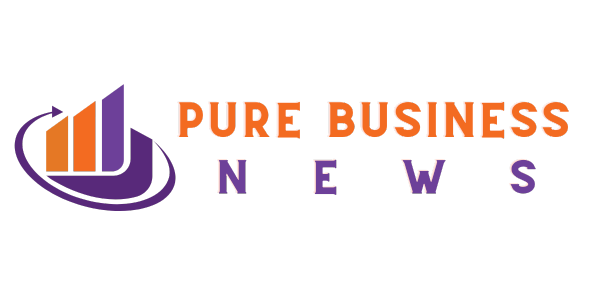Why SEO Matters

Search engine optimization (SEO) is an essential part of digital marketing. It helps businesses gain visibility on search engines, increase website traffic, and boost their overall online presence. SEO enables businesses to reach potential customers who are actively searching for products or services related to their business.
Planning SEO correctly can have a major impact on the success of any business. Search engines use complex algorithms to determine which websites they should rank higher in search results based on the content provided by each website. By optimizing your website with relevant keywords and phrases, you can improve your rankings in search engine results pages (SERPs). This will help you attract more visitors to your site and increase brand awareness among potential consumers. Additionally, SEO techniques such as link building can also play a major role in improving your SERP rankings by increasing the number of quality backlinks pointing to your page from other credible sources.
Element 1: Knowing Business Objectives & Keyword Research
For any SEO strategy, it’s essential to understand business objectives and conduct keyword research. Knowing what you need to achieve in terms of marketing goals is the first step for success, as without clear objectives you won’t have the necessary guidance for making tactical decisions. Once your goals are set, keyword research is a crucial part of creating an effective SEO campaign. It helps identify which words and phrases people use when they search online, so that your content can rank higher in SERPs (Search Engine Results Pages). Effective keyword research also should have information on the consumers search intent behind the keyword. This is how you find out if the search is transnational or informational by nature.
Element 2: High Quality Content

As the saying goes content really is king. Whenever you are looking to rank for any search term on the internet you need to make sure that you have a ton of high quality content being published both on your website and on other platforms that talks about your niche. Optimizing website content for SEO (search engine optimization) helps ensure that your website can be found by the people who are searching for it. It is an important part of maintaining and improving your online presence.
When creating content, following basic SEO principles will help you optimize your site effectively. This includes using relevant keywords throughout the text, ensuring that all pages have unique titles and meta descriptions, as well as making sure there are no broken links or images on the page. Additionally, use clear and concise language throughout your copy to make sure visitors understand what they’re reading. Linking related pieces of content together will also improve search engine visibility, as well as providing a better user experience overall.
Another great tip to follow when writing out high quality content is to breakdown the text in a way that adds value and makes it easier to read for your users. This could be through headings, bullet/number lists, adding imagery and videos and links to relevant studies.
Element 3: Quality Link Building
Link building is an important element of any successful SEO strategy. Quality link building refers to the process of acquiring backlinks from other websites that are relevant and authoritative in order to improve a website’s search engine rankings. Achieving this requires careful analysis and research on potential link partners, as well as creating high-quality content that makes it worth linking to. Quality links can be earned through various methods such as guest blogging, creating resources for other sites, providing reviews and participating in discussions on forums. Relevant links from reputable websites help search engines identify your website as a credible source of information which boosts ranking signals leading to increased visibility in search results. Additionally, link building helps drive referral traffic from the linked websites by providing users with direct access to your site when they click on the link. Link building should only be done with reliable sources and using proper guidelines like nofollow tags or canonical URLs to ensure that links do not violate any SEO rules or regulations set by Google or other search engines.
Element 4: Technical SEO
Technical SEO is the process of optimizing a website’s technical infrastructure to improve its presence in search engine results. It includes making improvements to a website’s architecture, HTML coding, and content management systems. Technical SEO involves configuring the backend of your website so that search engines can crawl and index it efficiently. This helps ensure that your site is properly optimized for ranking in organic search results. To further optimize a website for technical SEO, you must make sure all URLs are optimized, meta tags are complete, redirects are set up properly and site speed is up to par. Additionally, an effective strategy should include creating clean internal links with relevant anchor text and avoiding broken links or 404 errors on your pages as these could damage user experience and lead to lower rankings. Finally, if applicable for your business needs, use structured data markup such as Schema or JSON-LD to further enhance the visibility of your content across different devices and improve its relevance in SERPs (Search Engine Results Pages).
Element 5: Mobile Readiness
Mobile readiness is crucial for the success of SEO in today’s digital landscape. With more people accessing websites on their mobile devices than ever before, it is essential that your website is optimized for mobile viewing. This means ensuring fast loading times, responsive design, and user-friendly navigation. Mobile readiness also extends to incorporating mobile-specific features like click-to-call buttons and location-based services to enhance the user experience.
Furthermore, search engines prioritize mobile-friendly websites in their rankings, so having a site that is not mobile ready can significantly impact your SEO efforts. In fact, Google has implemented a mobile-first indexing approach where it primarily crawls and indexes the mobile version of a website before the desktop version. This shift highlights the importance of having a website that caters to mobile users for better organic visibility.
To achieve success in SEO, businesses must recognize that mobile readiness goes beyond simply having a responsive design. It involves optimizing page load times by compressing images and reducing unnecessary elements on mobile pages while still providing valuable content. Additionally, adopting accelerated mobile pages (AMP) technology can improve site speed even further and enhance the overall user experience. By prioritizing mobile readiness in SEO strategies, businesses can reach a wider audience and ultimately increase their online visibility and conversion rates.
Element 6: Local SEO & Review Practices

One of the key elements in local SEO is ensuring the consistency of your NAP (Name, Address, Phone Number) across all platforms. With search engines like Google increasingly using this information to determine local rankings, it’s crucial to keep your NAP updated and accurate. But it goes beyond just consistency – including relevant keywords in your business name or description can greatly enhance your visibility within local search results. So don’t overlook the power of a well-optimized NAP when it comes to boosting your local online presence.
Reviews are another vital aspect of local SEO that cannot be underestimated. Positive reviews not only help build trust and credibility for potential customers but also play a significant role in influencing search engine algorithms. Encouraging happy customers to leave reviews on platforms such as Google My Business or Yelp can go a long way in improving your local search rankings. However, remember that acquiring authentic reviews takes time and effort – so instead of buying fake ones or resorting to unethical methods, focus on delivering exceptional customer experiences that naturally result in positive feedback.
In addition to focusing on NAP consistency and reviews, citations are another essential component of effective local SEO strategies. Citations refer to digital mentions of your business name, address, phone number, or website on other websites besides directories. These mentions provide validation and authority for search engines when determining the legitimacy and relevance of your business within a particular location or industry.
Element 7: Analytics & Reporting
Analytics and reporting are critical components of any SEO strategy. They provide valuable insights into the performance of your website and help you make data-driven decisions to improve your search engine rankings. However, simply gathering data is not enough; it is essential to interpret and analyze the information effectively.
One fresh perspective on analytics is the integration of machine learning algorithms. By utilizing these algorithms, businesses can identify patterns and trends in their data that may have been previously overlooked. This kind of analysis can reveal hidden opportunities, such as untapped keywords or new content ideas, ultimately leading to higher organic traffic and better search visibility.
Another aspect to consider is the importance of custom reporting in analytics. While most platforms offer pre-designed dashboards and reports, tailoring them according to specific business goals can greatly enhance their effectiveness. Customized reports allow you to focus on the metrics that matter most to your organization, providing a clearer understanding of what is working well and what needs improvement for your unique SEO strategy.
Overall, analytics and reporting play a crucial role in optimizing an SEO campaign. By harnessing machine learning algorithms and customizing reports according to business objectives, you can gain invaluable insights that will drive improvements in organic traffic, conversions, and overall online success. It’s time for businesses to go beyond simple data collection and start unlocking the power behind analytics for better SEO outcomes.
Element 8: Social Media Integration
Social media has become an essential tool for businesses looking to boost their SEO efforts. When used strategically, social media platforms can help drive traffic to a website and improve its search engine rankings. One key aspect of leveraging social media for SEO is by optimizing profiles and posts with relevant keywords. By using popular hashtags and incorporating industry-specific terms in captions, businesses can increase the visibility of their social media content in search results.
Additionally, social media provides opportunities for building quality backlinks, which are crucial for improving a website’s authority and credibility in the eyes of search engines. Sharing valuable content on social media platforms can attract attention from influential bloggers or journalists who may then link back to your website or blog post. This not only drives referral traffic but also signals to search engines that your website is a trustworthy source of information.
Moreover, engaging with your audience on social media can also indirectly impact your SEO efforts. When users share and engage with your content on platforms like Facebook or Twitter, it increases the visibility and reach of your brand across the web. This increased brand exposure may lead to more people searching for your company directly through search engines, thus increasing organic search traffic. Ultimately, effectively utilizing social media as part of an overall SEO strategy can contribute to improved online visibility, higher rankings in SERPs (Search Engine Results Pages), and increased organic traffic for businesses of all sizes.
Element 9: User Experience UX
When it comes to optimizing your website for search engines, user experience (UX) plays a crucial role. Search engines like Google have become smarter in understanding user behavior and preferences, making UX an integral part of SEO strategy. A well-designed and user-friendly website not only attracts visitors but also increases their engagement, resulting in higher rankings on search engine result pages.
One key aspect of UX for SEO is page loading speed. Slow-loading pages can be frustrating for users and negatively impact your organic rankings. Therefore, it is essential to optimize your website’s loading time by compressing images, minifying code, and using caching techniques. By providing a faster and smoother browsing experience, you improve the chances of users staying on your site longer and reduce bounce rates.
Another important consideration for UX in SEO is your sites cross device optimziation. With the majority of internet users accessing websites through mobile devices, tablets and their computer having a responsive design that adapts to different screen sizes is crucial. Mobile-friendliness not only enhances the overall user experience but also affects how search engines perceive your site’s relevance and usability. It is vital to ensure that your website offers seamless navigation, easy readability of text without zooming in or out, and interactive elements that work well on mobile devices.
The last main element to consider when looking at the UX of the website is are you following best practices with accessibility on your site. This is a growing concern as your sites readability and accessiblity should be easy for people with vision impairment and other limiting factors.
Element 10: Creativity & Testing
Creativity testing for SEO is crucial in today’s digital landscape. It goes far beyond measuring organic search visibility or keyword rankings. To truly harness the power of creativity, one must break away from traditional metrics and dive into the realm of user experience and engagement.
One innovative approach to creativity testing is analyzing social media conversations and online discussions about a brand or topic. By assessing how people are talking about a company or industry, SEO professionals can gain valuable insights into what resonates with their target audience. This method not only provides a clearer picture of consumer sentiment but also helps identify new opportunities for content creation or campaign development.
In addition to examining conversations, incorporating visual elements can further enhance creativity testing for SEO. Visual content has become increasingly popular due to its ability to capture attention and convey information in a more engaging way. Utilizing tools like image recognition technology can help determine which types of visuals are most appealing to users within a specific niche or industry. By leveraging these insights, brands can create visually compelling content that stands out from the competition and drives higher engagement levels.
When it comes to creativity testing for SEO, thinking outside the box is essential.
Conclusion: Achieving SEO Success
Leveraging an agency to achieve SEO success can be a game-changer for businesses of all sizes. While some may argue that doing SEO in-house could save you money, working with an agency has a multitude of benefits. Agencies have access to a team of experts who specialize in different aspects of SEO, from keyword research to technical optimization. By entrusting your SEO efforts to an agency, you can tap into their knowledge and experience, ensuring you stay up-to-date with the latest trends and industry best practices.
Another advantage of leveraging an experienced SEO agency is the time and effort it saves you. Search engine optimization requires consistent monitoring, analysis, and adjustments – efforts that can divert your attention from other important business activities. With an agency handling your SEO strategy and implementation, you can focus on core tasks such as product development or customer engagement, leading to overall business growth.
Additionally, agencies often have access to advanced SEO tools that may not be feasible for small businesses or individual marketers to invest in. These tools provide valuable insights into competitors’ strategies, keywords performance trends, and website analytics. The combination of utilizing top-notch tools along with the expertise of professionals can give your business a competitive edge in search rankings.
In conclusion, while there are merits to doing SEO in-house, partnering with an agency offers significant advantages for achieving SEO success. By tapping into their specialized knowledge and resources, saving time through outsourcing tasks, and gaining access to advanced tools; businesses can greatly enhance their online visibility and drive organic traffic growth.
Ready to elevate your SEO strategy to the next level? Explore the benefits of cutting-edge SEO solutions in North Dakota to stay ahead of the competition and maximize your online presence effectively.

![Send a Message to Crash Friends WhatsApp Bomber [NO ROOT]](https://purebusinessnews.com/wp-content/uploads/2022/09/indiatv-whatsapp-12-1456402873-390x220.jpg)



